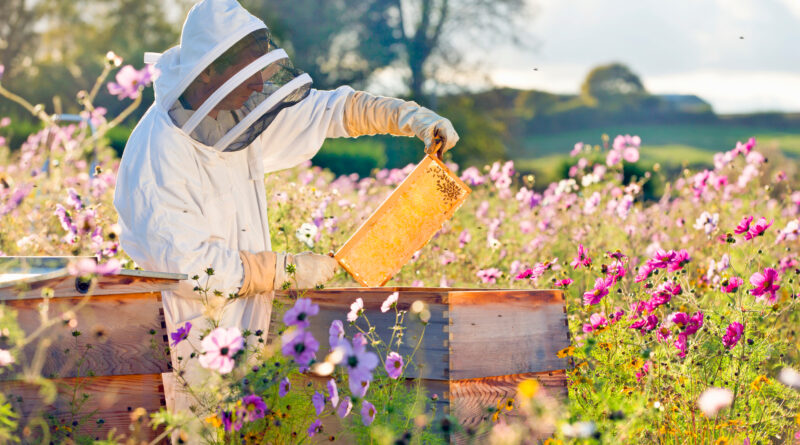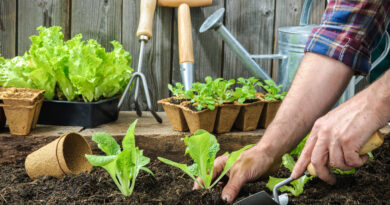A Buzzing Hobby
Backyard beekeepers help save our population of pollinators
By Amy Rognlie
For years, my husband dreamed of maintaining a bee hive in our backyard. “It would be so cool to watch the bees,” he said. And said. So last Christmas, I bought him a beginner beehive and a highly-rated, how-to book on beekeeping. Sadly, the eagerly assembled but unused hive still sits on our deck, waiting for some lucky bees to call it home, mostly because the sheer amount of information and dedication required seemed overwhelming to my hubby, who, as he laments, “only wanted to watch the bees, not mess with books and gear and equipment and…”
“But I have friends who are beekeepers,” I countered. “We could learn how to do this.” So, I asked my friend Tasha, a long-time amateur beekeeper in Belton, to give me the scoop on what it’s like to raise bees.
Tasha got involved in beekeeping in 2004 when her daughter was awarded a scholarship from the Williamson County Beekeepers Association. She was given a starter bee set and a mentor for one year. “We learned together that year,” Tasha says. “After she completed her year, she lost interest and I continued the beekeeping hobby.”
Since I have never been drawn to beekeeping, I asked Tasha the all-important question: Why do you do this? It seems like a lot of work. And being the wonderful third-grade teacher that she is, gave me a worthy answer. In short, she loves that there is always more to learn about the hobby (I told you she was a great teacher). She is also continually fascinated by God’s creation of bees and the working of the hive. “Hives are very orderly with all the bees busily working together for the good of the hive,” she explains. “And of course, I enjoy having pure local honey for my family and to give as gifts.”
Bees will also help pollinate your garden — and your neighbors’ garden, as a honeybee’s range is approximately three miles.
Unfortunately, the honeybee population in the United States has been declining steadily for the last several years, so there is a big push for backyard beekeepers to step up to the plate and help save the bees.
In Texas, an ag exemption is offered as an incentive, encouraging folks to keep bees in exchange for lowered property taxes.
According to Tasha, creating relationships with established beekeepers is paramount to success with your first hive.
A good place to find fellow bee enthusiasts is to join a local beekeeping group, such as the local chapter of the Texas Beekeepers Association, which offers a treasure trove of information, classes, products, events and even mentors to start you on your beekeeping journey.
LEARN MORE ABOUT BEEKEEPING
Bell/Coryell Beekeepers Association: https://bellcoryellbeeclub.org/
Texas Beekeepers Association: https://texasbeekeepers.org/




